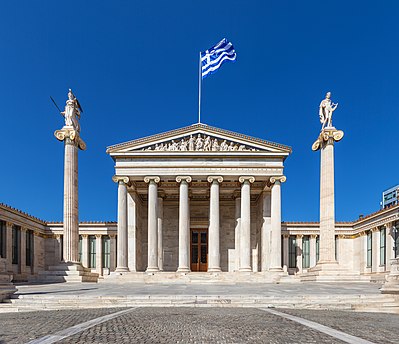Introduction
The European Union (EU) is a supranational political and economic union of 27 member states that are located primarily in Europe. The union has a total area of 4,233,255 km2 (1,634,469 sq mi) and an estimated total population of over 449 million. The EU has often been described as a sui generis political entity combining the characteristics of both a federation and a confederation. Containing 5.8% of the world population in 2020, EU member states generated a nominal gross domestic product (GDP) of around US$16.6 trillion in 2022, constituting approximately one sixth of global nominal GDP. Additionally, all EU states except Bulgaria have a very high Human Development Index according to the United Nations Development Programme. Its cornerstone, the Customs Union, paved the way to establishing an internal single market based on standardised legal framework and legislation that applies in all member states in those matters, and only those matters, where the states have agreed to act as one. EU policies aim to ensure the free movement of people, goods, services and capital within the internal market; enact legislation in justice and home affairs; and maintain common policies on trade, agriculture, fisheries and regional development. Passport controls have been abolished for travel within the Schengen Area. The eurozone is a group composed of the 20 EU member states that have fully implemented the economic and monetary union and use the euro currency. Through the Common Foreign and Security Policy, the union has developed a role in external relations and defence. It maintains permanent diplomatic missions throughout the world and represents itself at the United Nations, the World Trade Organization, the G7 and the G20. Due to its global influence, the European Union has been described by some scholars as an emerging superpower. In 2012, the EU was awarded the Nobel Peace Prize. The United Kingdom became the only member state to leave the EU, in 2020; ten countries are aspiring or negotiating to join it. (Full article...) Selected article The eurozone, officially euro area, refers to a currency union among the European Union member states that have adopted the euro as their sole official currency. The Eurosystem, headed by the European Central Bank, is responsible for monetary policy within the Eurozone. The Eurozone has 19 members, with a further six states and territories using it as their sole currency. It circulates widely beyond that, and has started to serve as a reserve currency. Based on official estimates of 2007 GDP, the Eurozone is the largest economy in the world. Selected picturePhotograph credit: Thomas Wolf The Academy of Athens is Greece's national academy and the highest research establishment in the country. Established on 18 March 1926, it operates under the supervision of the Ministry of Education and Religious Affairs.
This picture shows the main building of the Academy, a neoclassical building between Panepistimiou Street and Akadimias Street in the centre of Athens and one of the city's major landmarks. The building was designed as part of an architectural "trilogy" in 1859 by Danish architect Theophil Hansen, along with the University and the National Library. The Greek neoclassical sculptor Leonidas Drosis sculpted the principal multi-figure pediment sculpture, on the theme of the birth of Athena, based on a design by painter Carl Rahl. Two columns on either side of the portico feature statues of Athena on the left and Apollo on the right, also designed by Drosis.
Did you know?...that the President of Ireland, who serves as head of state, is elected for a seven year term and can be re-elected only once? ...that within the Eurozone the European Central Bank has the exclusive authority to set monetary policy? Selected cityAthens is the capital and largest city of Greece. Named after goddess Athena, Athens is a cosmopolitan metropolis with a population of 3.7 million people. The Athens metropolitan area constitutes the center of economic, financial, industrial, cultural and political life in Greece. The city is also rapidly becoming a business center in the European Union. Ancient Athens was a powerful polis city-state and a renowned center of learning, home of Plato's Academy and Aristotle's Lyceum. It is often referred to as the cradle of Western civilization, largely due to the impact of its cultural and political achievements during the 5th and 4th centuries BCE on the rest of the then known European Continent. The classical era heritage is still evident in the city, portrayed through a number of ancient monuments and artworks, the most famous being the Parthenon on the Acropolis. Athens was the host city of the first modern-day Olympic Games and, more recently, of the 2004 Summer Olympics. General imagesThe following are images from various European Union-related articles on Wikipedia.
TopicsFeatured contentFeatured articles
Featured lists
Featured contentGood articles
CategoriesRelated portalsAssociated WikimediaThe following Wikimedia Foundation sister projects provide more on this subject:
Discover Wikipedia using portals |











































































